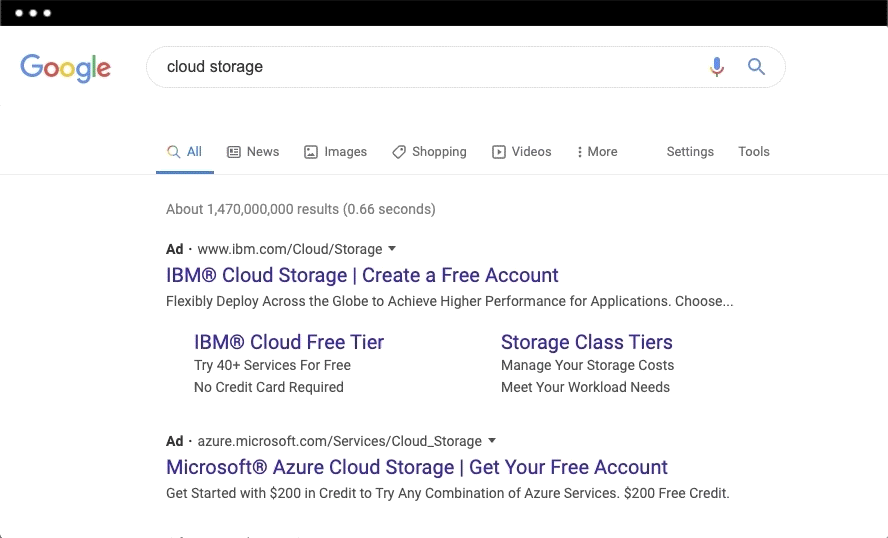Last Updated on June 6, 2020
Search engines are evolving constantly and for the better. Your client’s content strategy must evolve with the flow as well.
Google unravelling dozens of core algorithm updates regularly, it is crucial than ever to understand SERPs. Now it can be difficult for some to stay ahead of the curve when it comes to clients’ content strategy.
SeoEaze is here to help you understand how you can evolve your client’s content strategy to keep up with the ever-changing algorithms.
Intent will still be the focus in 2020
A lot of things are evolving in the search landscape but in 2020 the searcher’s intent will remain an important aspect of SEO.
If you read the Amazon shareholders annual letter of 2017 by Jeff Bezos, you might remember this statement:
“One thing I love about customers is that they are divinely discontent. Their expectations are never static – they go up. It’s human nature. We didn’t ascend from our hunter-gatherer days by being satisfied. People have a voracious appetite for a better way, and yesterday’s ‘wow’ quickly becomes today’s ‘ordinary’. I see that cycle of improvement happening at a faster rate than ever before.”
As a marketer, your goal must be to educate your clients about the nature of SEO and how exactly it works.
If your clients are aware of the complexities of the SEO machine and the continuously evolving algorithms, then it will be infinitely easier for you to carry out SEO campaigns.
Here’s how you can proceed.
Query Types
A search intent can be segmented into three parts:
- DO
- KNOW
- GO
This then corresponds to three types of queries.
Transaction Queries, as the title suggests these are queries that are related to money-generating pages in the SERPs.
Informational Queries, (How-to/where/what keywords), they encompass everything informational including blogs, resources, definitions and guides.
Navigational Queries that usually related to branded content aimed at reaching a specific place.
These are broadly the major intents that you want to address but there are several “sub-intents” as well that are worth mentioning. Three major ones are the:
Comparison intent: “Best”, “versus” and review content
Local intent
Inspirational intent
Mixed SERPs: Where It Gets Tricky
Understanding mixed SERP’s is complicated as these pages have a mix of search intent, pages from all several niches and categories.
For instance, if you Goggle “cloud storage” you will be returned with both transaction as well as informative results.

As online products and software tend to be much more complex, therefore we often see mixed SERPs. The same goes with the queries related to the “ticketing system” you see five product results accompanied with four informative results.
If the content is related to product or service, it is better to prioritize it for the queries with “Buy” intent to have a better ROI.
Ask the Right Questions
When talking about intent it is very important to ask the right questions. This can include queries like:
What is the audience’s goal?
What tasks are they trying to accomplish?
Why would they want this content?
How the content related to other topics that my audience care about?
You need to know your client’s niche better than anyone else so that you can conduct the research and offer an informative, transactional or navigation content.
Own Your Queries
You need to provide your users with a specific journey they are rooting for. Identify whether the content currently ranks for branded queries or not. Branded content can result in traffic and conversions.
Promo codes are a good example of how branded content can better. Aggregator sites have coupons from all sorts of companies, but they have the best chance of owning and ranking for “{Brand Name} promo code” queries.
As competition is high, you need to work on the content that ranks above others for a branded query.
Solve Problems
Wil Reynolds said I’d Rather Be Thanked, Then Ranked at Mozcon 2017. As marketers, our job is to solve the problems and bring great answers even it doesn’t fit well with your business goals.
You need to go the extra mile and provide a real solution.
Now after providing a real answer you need to retarget your audience more smartly.
How to use SERP to Improve Your Clients’ Strategy
1. Learn from the competition
It’s very much possible that someone has already nailed it before you. So rather than just reinventing the wheel, you can move things a lot faster by studying the competition.
Research the top results on the SERPs where your client’s pages are ranking.
Then compare them with the competitors’ top results to understand what’s unique with them and how exactly can you replicate their success.
2. Learn from the core updates
No one truly understands how Google works, not even the engineers working behind the scenes. But one consistent truth is that the search giant keeps rolling out the updates every so often.
Every core update packs some surprises that you can only understand if you pay a closer look at them for insights.
It is obvious that you will be verifying whether your client’s website is affected by the update or not. But it is important not to make any rash decisions.
Your client’s content strategy does not necessarily need an overhaul with every update.
3. Maximize the SERPs
More and more SERPs are getting local and it is important that you consider this when you are working on the content strategy.
Aside from text content, there is a variety of other content that enjoys SERP features and placements, use such content as well.
Affiliates: If the affiliates in your niche are not including you, then you must be doing something wrong, work on it.
Video carousel: Create videos for the phrases that trigger the video carousel.
FAQs: Google is actively including frequently asked questions, so don’t miss on those
Sitelinks: For non-branded query, you see the result with four site links below, you need to make sure that your clients content has those pages that give value and are optimized.
Takeaways
- Educate your clients about algorithms and SEO
- Mixed SERPs are here to stay, so plan for those
- Intent, context, and relevance are more important than keywords
- Give the people what they want: Answers are important than funnels

